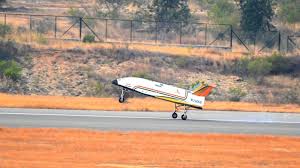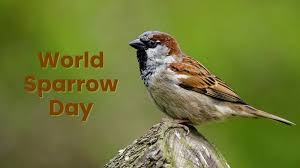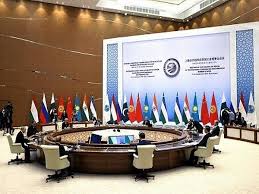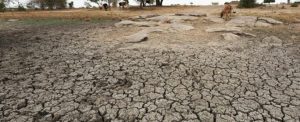Today’s Current Affairs: 23rd March 2024 for UPSC IAS exams, State PSC exams, SSC CGL, State SSC, RRB, Railways, Banking Exam & IBPS, etc
Table of Contents
World Water Day 2024:

Every year, March 22 is observed as World Water Day to raise awareness about the global water crisis and the importance of water.
- The day aims to inspire people to sustainably manage freshwater resources, address water-related issues and support the achievement of Sustainable Development Goal 6: Water and Sanitation for All by 2030.
- The theme for this year is ‘Water for prosperity and peace’.
- The 2024 edition of the UN’s flagship World Water Development Report (WWDR) report will explore this theme.
- The theme changes every year, but the central focus remains on topics relevant to clean water, sanitation and hygiene (WASH), which is in line with the targets of Sustainable Development Goal 6.
Operation Indravati:

Operation Indravati is an ongoing evacuation mission launched by the Indian government to rescue its nationals from Haiti, a Caribbean nation grappling with widespread gang violence and political instability.
- The operation, named after the Indravati River in India, aims to ensure the safety and well-being of Indian citizens amidst the escalating crisis in Haiti.
- India launched Operation Indravati to evacuate its citizens stranded in Haiti.
- External Affairs Minister Dr. S. Jaishankar announced that 12 Indians had been successfully evacuated to the Dominican Republic.
- He emphasized the Indian government’s unwavering commitment to the security and well-being of its nationals abroad and expressed gratitude to the Dominican Republic for their support in the evacuation process.
UN World Happiness Report 2024:

UN World Happiness Report 2024 has released recently.
- India maintains its position at 126th in the global happiness index, which is the same as last year.
- The World Happiness Report is an influential publication that ranks national happiness across countries.
- It is based on survey data collected from respondents who evaluate their own lives.
- The report was initiated by the United Nations General Assembly, which adopted a resolution in 2011 inviting member countries to measure the happiness of their people and use the data for public policy guidance.
- The first World Happiness Report was released in 2012 as a foundational text for the UN High-Level Meeting on Well-being and Happiness.
- Finland has consistently secured the top spot as the world’s happiest country for seven consecutive years.
- Nordic nations continue to dominate the top rankings, with Denmark, Iceland, and Sweden following closely behind Finland.
- Out of the 143 countries surveyed, Afghanistan remained at the bottom of the list, facing ongoing humanitarian crises since the Taliban regained power in 2020.
Pushpak: ISRO’s Reusable Launch Vehicle

The Indian Space Research Organisation (ISRO) successfully conducted its third mission involving the Reusable Launch Vehicle (RLV) named “Pushpak” on March 22, 2024.
- The primary objective of the Pushpak mission is to develop essential technologies for a fully reusable launch vehicle, aimed at enabling low-cost access to space.
- This mission is part of ISRO’s ongoing efforts to reduce the cost of space missions and minimize space debris.
- The Pushpak RLV was carried to an altitude of approximately 4.5 km by an Indian Air Force Chinook helicopter and released after achieving predetermined pillbox parameters.
- The Pushpak RLV is designed as fully reusable single-stage-to-orbit (SSTO) vehicle.
- It incorporates several major elements from advanced technology demonstrators such as the X-33, the X-34 testbed, and the upgraded DC-XA flight demonstrator.
BhashaNet Portal : National Internet Exchange Of India

The National Internet Exchange of India (NIXI), in collaboration with the Ministry of Electronics and Information Technology (MeitY), has successfully launched the BhashaNet portal during the Universal Acceptance (UA) Day event.
- The BhashaNet portal endeavours to establish a multilingual internet, where website names and email addresses in local languages function seamlessly worldwide.
- The National Internet Exchange of India (NIXI), established in 2003 as a not-for-profit organization.
- It is a statutory body established under the Companies Act 2013.
- NIXI was created to enhance the use of Internet Service Protocols (ISPs) within India.
- Instead of routing domestic internet traffic abroad, NIXI facilitates routing it within the country.
- This results in better service quality (reduced latency) and lower bandwidth charges for ISPs by saving on international bandwidth.
- It aims to increase internet penetration and adoption in India by managing and enabling the internet ecosystem for the masses.
- NIXI manages India’s Country Code Top Level Domain (ccTLD), which is.IN.
- The Government of India delegated the operations of INRegistry to NIXI in 2004.
- The INRegistry oversees and manages India’s .IN ccTLD, ensuring its smooth functioning.
- NIXI also operates the Indian Registry for Internet Names and Numbers (IRINN), which serves as the National Internet Registry.
- IRINN plays a crucial role in allocating and managing IP addresses and domain names within India.
- NIXI actively promotes the establishment of Internet Exchange Points (IXPs) across India.
GRID Controller Of India Limited : Miniratna Category-I Status

RID Controller of India Limited (GRID-INDIA) reached a significant milestone as it was designated as a Miniratna Category-I Central Public Sector Enterprise (CPSE) by the Ministry of Power highlighting its pivotal role in the nation’s power sector.
- Established in 2009, GRID-INDIA oversees the seamless operation of the Indian Power System, ensuring efficient power transfer within and across regions.
- It manages the All India synchronous grid through five Regional Load Despatch Centres (RLDCs) and the National Load Despatch Centre (NLDC), playing a crucial role in the power landscape.
- GRID-INDIA manages competitive electricity markets, prioritising reliability, sustainability, and fair competition for integrated power system operations.
World Sparrow Day 2024:

Every year, World Sparrow Day is observed on March 20, shedding light on the significance of sparrows in maintaining biodiversity and ecological balance.
- In 2024, the theme for World Sparrow Day is “Sparrows: Give them a tweet-chance!”, “I Love Sparrows” and “We Love Sparrows”.
- The inaugural World Sparrow Day took place on March 20, 2010. In India, it was initiated by the Nature Forever Society.
- Founded by Mohammed Dilawar, an Indian conservationist, the society aimed to emphasize the importance of conserving house sparrows and other common birds.
- Sparrow populations are declining due to habitat degradation, urbanization, and changes in agricultural practices.
- The loss of nesting sites and foraging areas, as well as the decline in insect populations, are major factors.
- This decline has wide-ranging effects, including potential increases in insect pests and threats to biodiversity.
Fourth Edition Of The Shanghai Cooperation Organisation (SCO) Startup Forum:

The fourth edition of the Shanghai Cooperation Organisation (SCO) Startup Forum was organized recently in New Delhi.
- Shanghai Cooperation Organisation Startup Forum is a platform for the stakeholders from the startup ecosystems from all SCO Member States to interact and collaborate.
- It aims to create multilateral cooperation and engagement for startups among the SCO Member States. It will empower the local startup ecosystems in the Member States.
- India will host the second meeting of the Special Working Group for Startups and Innovation (SWG) in November 2024 and SCO Startup Forum 5.0 in January 2025.
- Startup India had organized various initiatives for SCO Member states including:
- SCO Startup Forum 1.0: The SCO Startup Forum in 2020 laid the foundation for multilateral cooperation and engagement for startups among the SCO Member States.
- SCO Startup Forum 2.0: The two-day Forum was held virtually in 2021. SCO Startup Hub, a single point of contact for the SCO startup ecosystem, was launched in this forum.
- SCO Startup Forum 3.0: DPIIT organised the first ever physical SCO Startup Forum in 2023 for the SCO Member States.
- The first Meeting of the SCO Special Working Group on Startups and Innovation (SWG), permanently chaired by India, was organised on the theme ‘Growing from Roots’ in 2023.
State Of The Global Climate 2023: WMO

The World Meteorological Organization (WMO) has released its State of the Global Climate 2023 report, which highlights that the heat content of the world’s oceans reached a record high in 2023.
Key Highlights of the Report:
- The heat content of the world’s oceans reached a record high in 2023, with the highest level of ocean heat content ever recorded.
- While the majority of the world’s oceans are experiencing warming, relatively small regions, such as the subpolar North Atlantic Ocean, are experiencing cooling.
- This cooling is linked to the slowdown of the Atlantic Meridional Overturning Circulation (AMOC), a system of ocean currents.
- AMOC is a system of ocean currents that circulates water within the Atlantic Ocean, bringing warm water north and cold water south.
- Global average sea-surface temperatures (SST) were at a record high in 2023, with several months breaking previous records by significant margins.
- Exceptional heating was observed in various regions including the eastern North Atlantic, the Gulf of Mexico, the Caribbean, the North Pacific, and large areas of the Southern Ocean.
- The global ocean experienced an average daily Marine Heatwave coverage of 32%, well above the previous record of 23% in 2016.
- At the end of 2023, most of the global ocean between 20° S and 20° N had been in heatwave conditions since early November.
- The global mean near-surface temperature in 2023 was 1.45 ± 0.12 °C above the pre-industrial 1850–1900 average, making it the warmest year on record.
- Every month from June to December was record warm for the respective month, and the long-term increase in global temperature is attributed to increased concentrations of greenhouse gases in the atmosphere.
- Glaciers worldwide experienced the largest loss of ice on record, driven by extreme melt in both western North America and Europe.
- Extreme weather events such as heatwaves, floods, droughts, wildfires, and tropical cyclones had major socio-economic impacts on all inhabited continents.
- Tropical Cyclone Freddy in February and March 2023 was one of the world’s longest-lived tropical cyclones with major impacts on Madagascar, Mozambique and Malawi.
- Tropical Cyclone Mocha in 2023, was one of the most intense cyclones ever observed in the Bay of Bengal and triggered 1.7 million displacements across the sub-region from Sri Lanka to Myanmar and through India and Bangladesh, and worsened acute food insecurity.
- Renewable energy generation surged in 2023, with renewable capacity additions increasing by almost 50% from the previous year.
Tri Lateral Exercise:

INS Tir and INS Sujata will participate in the forthcoming edition of India Mozambique Tanzania (IMT) Tri Lateral (TRILAT) Exercise.
- IMT Trilateral Exercise is a joint maritime exercise scheduled from 21-29 Mar 24.
- As part of the harbour phase scheduled from 21-24 Mar 24, Naval ships Tir and Sujata will engage with the respective Navies at the ports of Zanzibar (Tanzania) and Maputo (Mozambique).
- This phase would begin with a Planning Conference followed by conduct of joint harbour training activities like Damage Control, Fire Fighting, Visit Board Search and Seizure procedures, Medical Lectures, Casualty Evacuation and Diving operations.
- The sea phase of the exercise is covering practical aspects of countering asymmetric threats, Visit Board Search and Seizure procedures, boat handling, manoeuvres and firing exercise.
- A joint EEZ surveillance is also planned during the sea phase.
- The exercise will conclude with a joint debrief scheduled at Nacala (Mozambique).
White Dwarf:

Astronomers report the detection of four white dwarf stars of a recently discovered rare DAQ spectral subclass.
- A white dwarf is the stellar core left behind after a dying star has exhausted its nuclear fuel and expelled its outer layers to form a planetary nebula. It is what stars like the Sun become after they have exhausted their nuclear fuel.
- White dwarfs no longer support nuclear fusion reactions that generate energy, but they are still extremely hot.
- A typical white dwarf is half as massive as the Sun, yet only slightly bigger than Earth.
- This makes white dwarfs one of the densest collections of matter, surpassed only by neutron stars.
- A newly born white dwarf consists of helium, carbon and oxygen nuclei, swimming in a sea of highly energetic electrons.
- Unlike most other stars that are supported against their own gravitation by normal gas pressure, white dwarf stars are supported by the degeneracy pressure of the electron gas in their interior.
- Degeneracy pressure is the increased resistance exerted by electrons composing the gas, as a result of stellar contraction.
- Unless it is accreting matter from a nearby star, the white dwarf cools down over the next billion years or so.
- It is predicted that they would ultimately form ‘black dwarfs’, although the Universe is likely not old enough for any black dwarfs to exist yet.
Section 153A Of The Indian Penal Code:

The Supreme Court reiterated that to constitute an offence under Section 153A of the Indian Penal Code, the essential ingredient is to create a sense of enmity and disharmony amongst two or more groups or communities.
- Section 153A of the IPC attempts to punish those who engage in promoting any kind of enmity among different groups on the basis of religion, caste, race, place of birth or residence or even language.
- The provision puts a liability on those who:
- Spread enmity in the form of words (spoken or written), visual representations, and signs with the intention of causing disharmony, hatred, or disturbance among people belonging to different groups, religions, castes, or communities.
- Spread disharmony and disturb the public tranquility of the people belonging to different racial and religious groups.
- Aid in the organising of certain movements, drills that encourage as well as train the participants of such movements to use criminal force and violence upon people belonging to other racial and religious groups and communities.
- The offence is a cognizable offence and the punishment for the same may extend to three years, or with fine, or with both.
- Further, the offence under Section 153A is non-bailable in nature, wherein the accused is tried by the magistrate of the first class.
- However, the punishment of the offence committed in a place of worship is enhanced up to five years and a fine.
Ebola: Study

Scientists recently found a new way in which Ebola reproduces in the human body, identifying a potential target for drugs to prevent the viral disease.
- Ebola virus disease (EVD, or Ebola) is a rare but severe illness in humans.
- It is caused by several species of viruses from the genus Ebolavirus, that are found primarily in sub-Saharan Africa.
- It gets its name from the Ebola River, which is near one of the villages in the Democratic Republic of Congo where the disease first appeared.
- Ebola isn’t as contagious as more common viruses like colds, influenza, or measles.
- It spreads to people by contact with the skin or bodily fluids of an infected animal, like a monkey, chimp, or fruit bat.
- Then it moves from person to person in the same way.
- There are occasional Ebola disease outbreaks in people, occurring primarily on the African continent.
- Symptoms of Ebola can start two to 21 days after being infected by the virus.
- Symptoms start out flu-like but can progress to severe vomiting, bleeding, and neurological (brain and nerve) issues.
- There is no known treatment for Ebola, although experimental vaccines and therapeutics are being tested.




